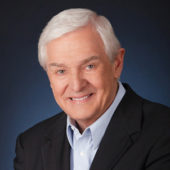We all want our kids to learn, grow, and succeed in life. But it’s so tempting to be there all the time for every need, that our kids never have the opportunity to fail.
In the book , we write about choosing to allow failure and success. Let’s take a look at that concept and get some clarity.
Choosing to allow failure is as simple as choosing not to be a helicopter parent. We’ve read about them for years and heard about the havoc they can cause. These are parents who intervene at every turn in order to keep their kids from failing.
Helicopter parents surface in the classroom and on the playing field. They visit the teacher when their child doesn’t score high enough on an exam. They meet with the coach when junior doesn’t get the playing time Mom or Dad feel he deserves.
Landing that copter is important for the child. A child who manages to dodge failure because of his parents’ intervention will not be learning how to recover from failure.
Failure is a part of life. At some point every person fails and the child who has been protected from this reality doesn’t have the skills needed to recover.
When a parent chooses to allow failure, the child learns to accept responsibility. “He made me do it,” or “The cat ate my math paper,” is no longer a viable explanation. Accepting responsibility is an important step toward maturity.
Helicopter parents may protect their child from failure for a few years but during that time they are also keeping the child from owning his successes. A child used to experiencing continual intervention from his parents will believe they have somehow orchestrated any success that comes his way.
Being an advocate for your child is another matter. A parent must be discerning in order to determine if and when it is appropriate to intervene. There may be limited times when it is the next right choice.




















